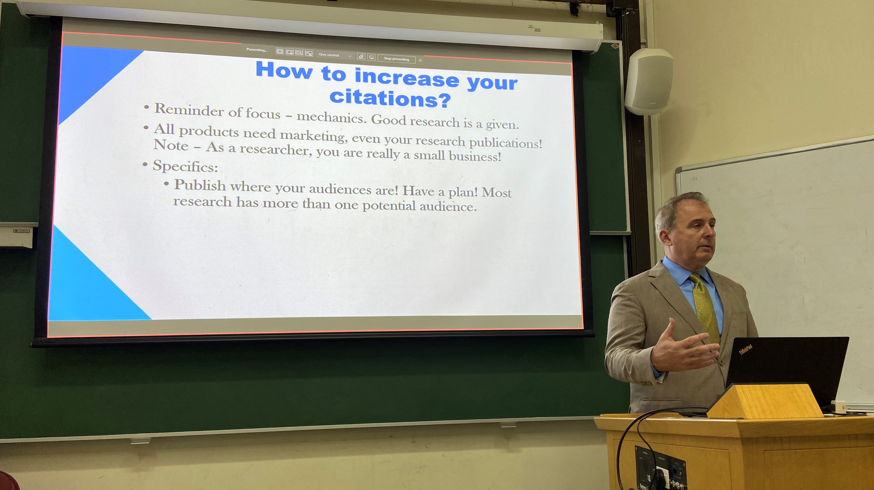Recent Posts
- Strengthening Industry Collaboration: CSE Hosts IAB Meeting for CS and CE Programs
- CSE Students Secure First Place at Snoonu Hackathon 2026
- CSE Faculties Receive Grants on Institutional Collaboration between Qatar University & Khalifa University
- Computer Engineering Practicum Demo Day & Contest (4th Edition)
- CSE faculty receives research funding from Google
Archives
- January 2026
- December 2025
- November 2025
- September 2025
- August 2025
- May 2025
- February 2025
- January 2025
- December 2024
- November 2024
- September 2024
- June 2024
- May 2024
- April 2024
- March 2024
- February 2024
- January 2024
- December 2023
- November 2023
- October 2023
- September 2023
- June 2023
- May 2023
- April 2023
- March 2023
- February 2023
- January 2023
- December 2022
- November 2022
- October 2022
- September 2022
- August 2022
- May 2022
- April 2022
- March 2022
- February 2022
- January 2022
- December 2021
- November 2021
- October 2021
- September 2021
- August 2021
- July 2021
- May 2021
- April 2021
- March 2021
- February 2021
- January 2021
- December 2020
- November 2020
- October 2020
- September 2020
- August 2020
Categories
Invitation to seminar: Restore to Analyze Biomedical Signal Restoration and Analysis
November 3, 2022 / Leave a comment
Don’t miss the seminar!
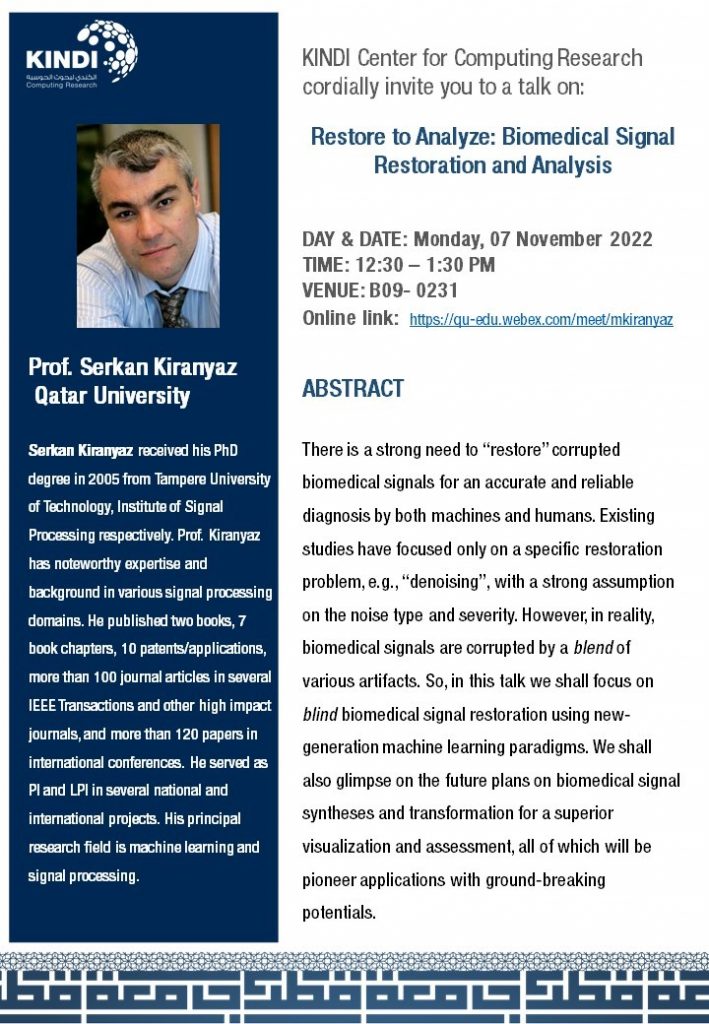
QU Ranked among Top 100 Universities Worldwide in Computer Science (THE 2023)
October 27, 2022 / Leave a comment
Qatar University has been ranked among the top 100 universities worldwide in Computer Science, according to Times Higher Education (THE) World University Ranking of 2023 that was just released. This is indeed a big achievement for our department. It is surely a result of years of active and hard work in planning, teaching, and research. Congratulations to all members!
QU’s rank has jumped this year over about 25 positions in THE CS subject ranking. With a steady progress over years, here are the CS ranks of QU since 2018:
- 2018: 251-300
- 2019: 201-250
- 2020: 201-250
- 2021: 101-125
- 2022: 101-125
- 2023: 95

CSE Team Wins Best UREP 2022 Presentation
October 19, 2022 / Leave a comment
A CSE team of undergraduate students, supervised by our faculty member Dr. Noora Fetais, won the Best Presentation award in the 14th Annual Undergraduate Research Experience Program (UREP) competition, which was held on 18th of October 2022. The winning project is titled “Intelligent and Immersive Cultural Game using Virtual Reality” and the team consists of the students Yahia Boray, Hesham Zaky, and Omar Osman.
UREP is one of the main programs offered by Qatar National Research Fund (QNRF) and designed to fulfil its aims in developing research infrastructure in Qatar by establishing the basis of scientific research at the undergraduate level. UREP provides a great opportunity for undergraduate students to experience scientific research and to engage in the various processes to build skills essential for the professional development of the students.
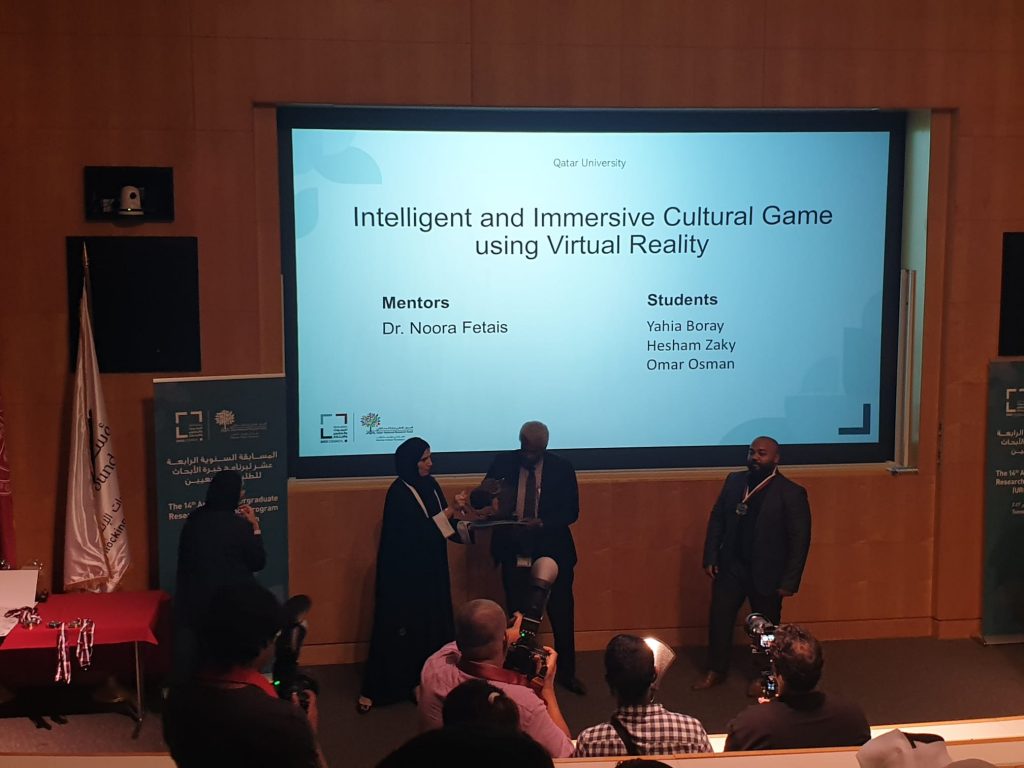
The developed game aims to preserve and spread cultural practices. It introduces new gaming mechanics, allowing user interaction with virtual game objects using hand gestures. The user’s objective is to hunt prey in their natural habitat which means that the player will physically change his location to hunt a specific prey using his falcon to mimic how the falcon hunts for its’ prey in the real world. This interaction with the real world, along with the incorporation of realistic graphics and mixed reality features, enhances the user’s experience and helps in preserving cultural practices.
Previous work tried to achieve the same goal by different approaches that led to different user segments and different usability cases. One major limitation in that work was the accessibility due to the use of specialized hardware. The hardware is accessible to only a small segment of users, and due to the challenges forced by the COVID19 situation reusing the hardware is prohibited in conferences or exhibitions.
As a result, not many will have access to the developed solution. The new implementation was designed to work on both Android and IOS to have a social interaction between the largest possible numbers of players. Other features that could also contribute to the goal of the project include building a virtual museum and displaying real falcons using the capabilities mixed reality has to offer.
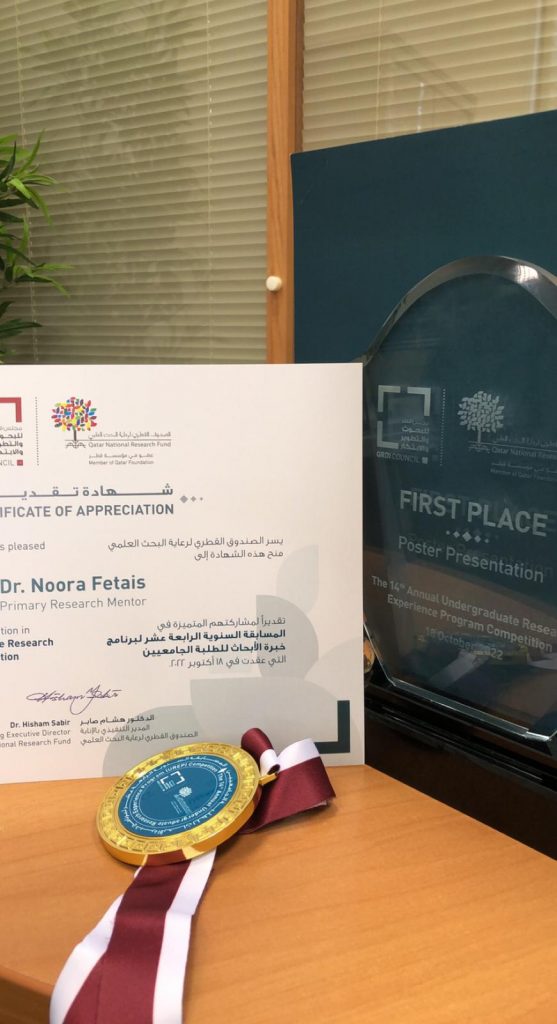
Congratulations to the winning team!
Invitation to Seminar: Confidential Computing in Cloud Environments – Current Trends, and Challenges
October 19, 2022 / Leave a comment
Don’t miss the seminar!
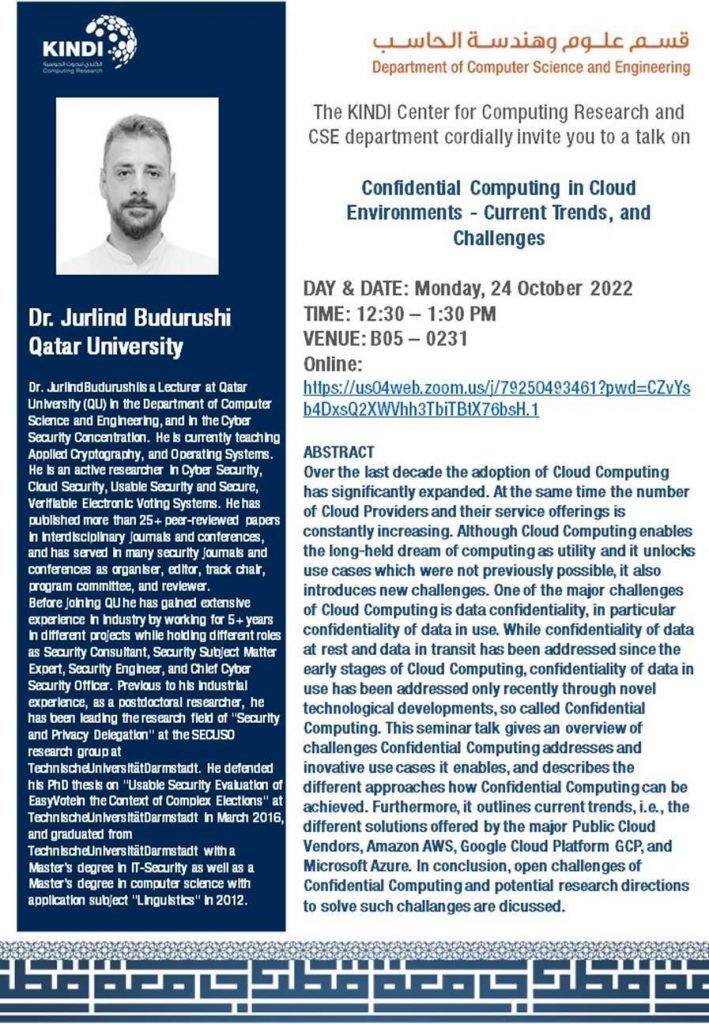
Invitation to Seminar: Short Block Codes for Reliable Communications within the Coexistence of 5G-NR-U and WiFi
October 14, 2022 / Leave a comment
Don’t miss the seminar!
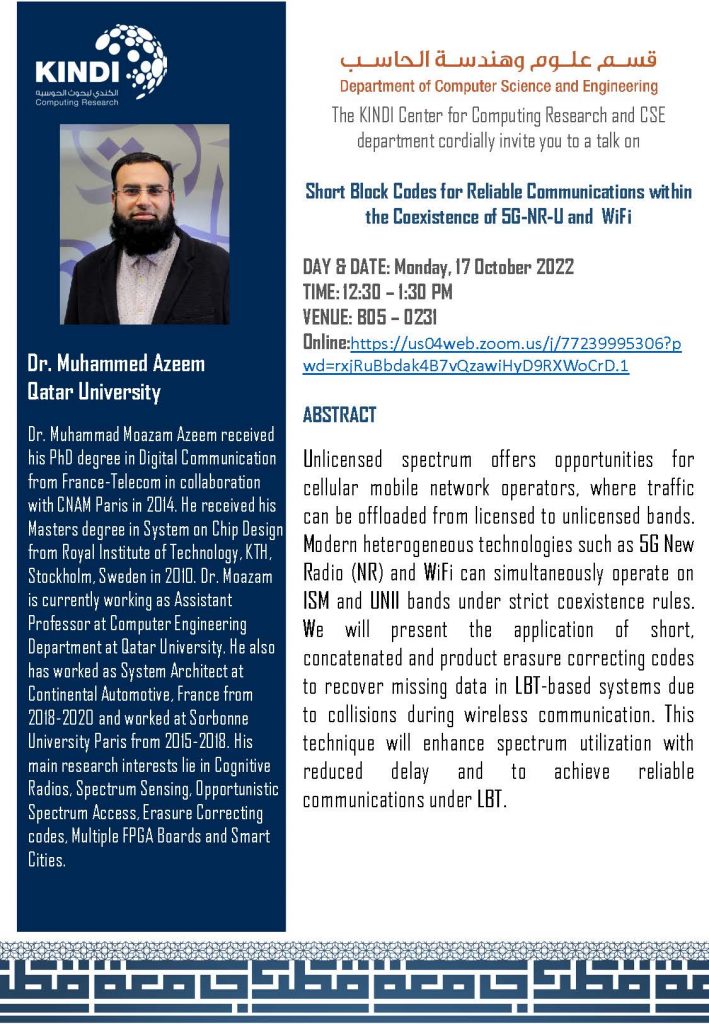
CSE Seminars Fall 2022-Spring 2023
October 14, 2022 / Leave a comment
In collaboration with KINDI research center in Qatar University, the Computer Science and Engineering Department introduces weekly research seminars. Here are the abstracts for the different seminars presented.
CSE Seminar by Prof. Saeed Salem
Date: 21st Sep 2022
Title: “Mining cohesive and frequent subgraph patterns from rich graphs”.
Abstract: Graphs are increasingly being used to represent systems of interacting entities. In addition to the structural relationships defined by edges, these graphs have attribute data annotating entities and relationships. In this talk, we will present graph mining algorithms for extracting vertex-induced cohesive subgraphs that share common attributes and frequent and maximal subgraphs. These algorithms are employed for mining connected protein-protein interaction subgraphs and frequent co-expression subnetworks from multiple cancer data. We will discuss applications of frequent subgraph mining in generating adversarial malware examples and building robust malware classification systems.
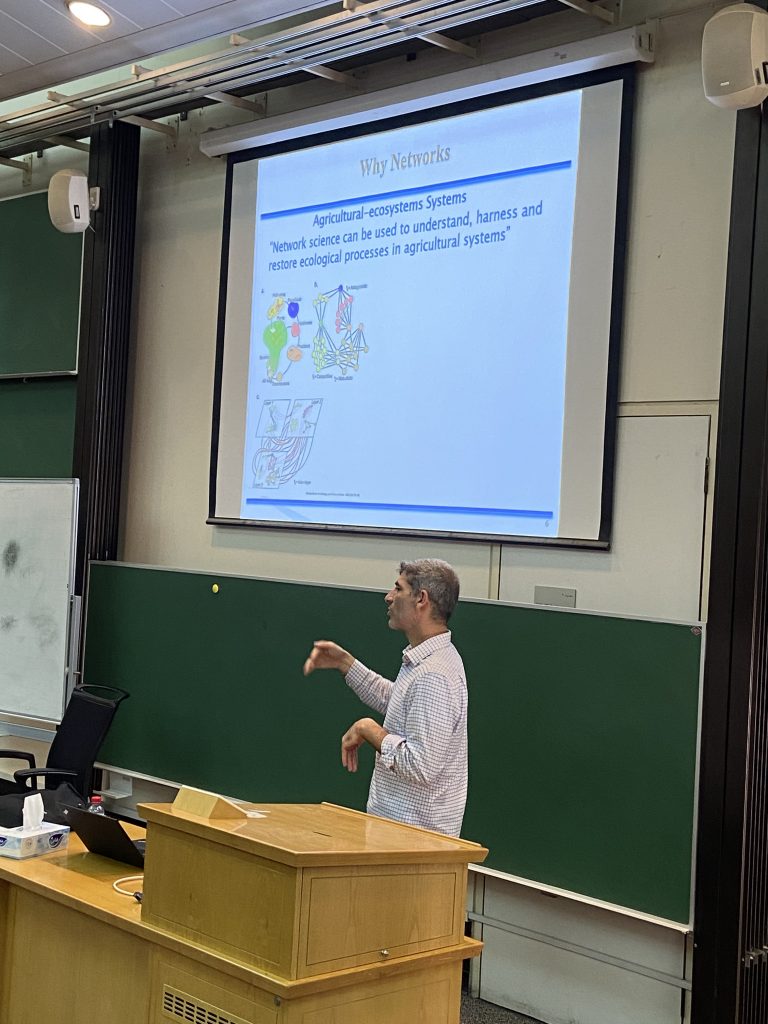
CSE Seminar by Dr. Mahmoud Barhamgi
Date: 28th Sep 2022
Title: “Contributions towards a safer digital world and more respectful of users rights”.
Abstract: Advances in AI, mobile and Internet technologies have been progressively reshaping our lives over the past few years. Their applications touch today all aspects of our daily lives and include smart systems and services of all sorts and sizes that we used daily to work, receive healthcare, travel and even socialize. These systems collect huge amounts of data about us and exploit it for various purposes that could affect positively and negatively our lives. Even though most of these systems claim to abide by data protection regulations and ethics, data misuse incidents keep making the headlines. In this talk, I present a selection of my previous research works on securing the digital space and making it more respectful of their rights such as the right to privacy and transparency. Explored works include flexible and privacy-preserving data integration, privacy engineering in cyber-physical systems; radicalization and cyberbullying detection on social networks.
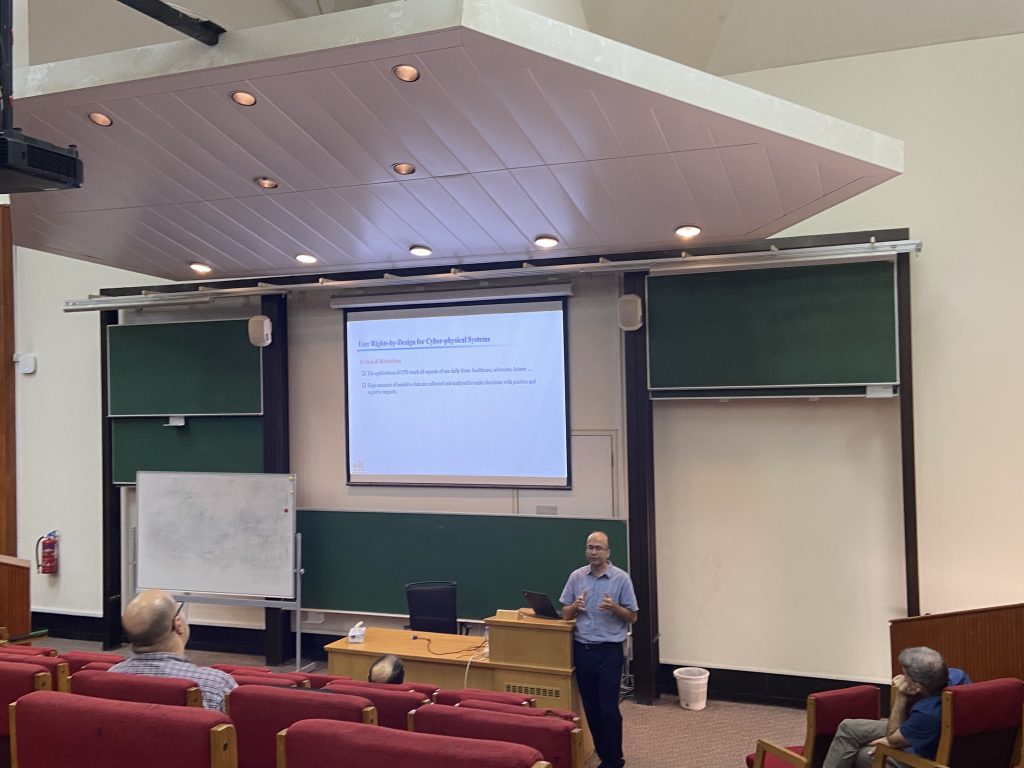
CSE Seminar by Dr. Mahmmad AlSada
Date: 12nd Oct 2022
Title: “From Sci-Fi to Reality: Realizing Wearable Snake-Shaped Robotic Appendages for Daily Use”.
Abstract: Augmenting humans with robotic appendages have long been envisioned in sci-fi and pop-media as a mean to extend our bodies. Recent advances in robotics have also demonstrated various prototypes that could realize such vision. However, there is a huge gap between existing research within robotics communities and proposed visions, which prohibits the realization of robotic appendages within our daily lives. Especially, research literatures are severely limited in terms of targeted use cases, research methods and evaluation approaches that focus on daily usage. This lecture covers our journey of exploring robotic appendages using an iterative human-centric design approach; starting with in-depth exploration of user’s requirements and expectations, followed by the realization of multiple robotic appendages and their evaluations. Based on our work, we extracted essential design considerations to realize robotic appendages in our daily lives, which emphasis four main domains. Lastly, we discuss the implications of our research outcomes and highlight the lessons-learned from conducting this form of cross-disciplinary user-centered research within the scope of our work and beyond.
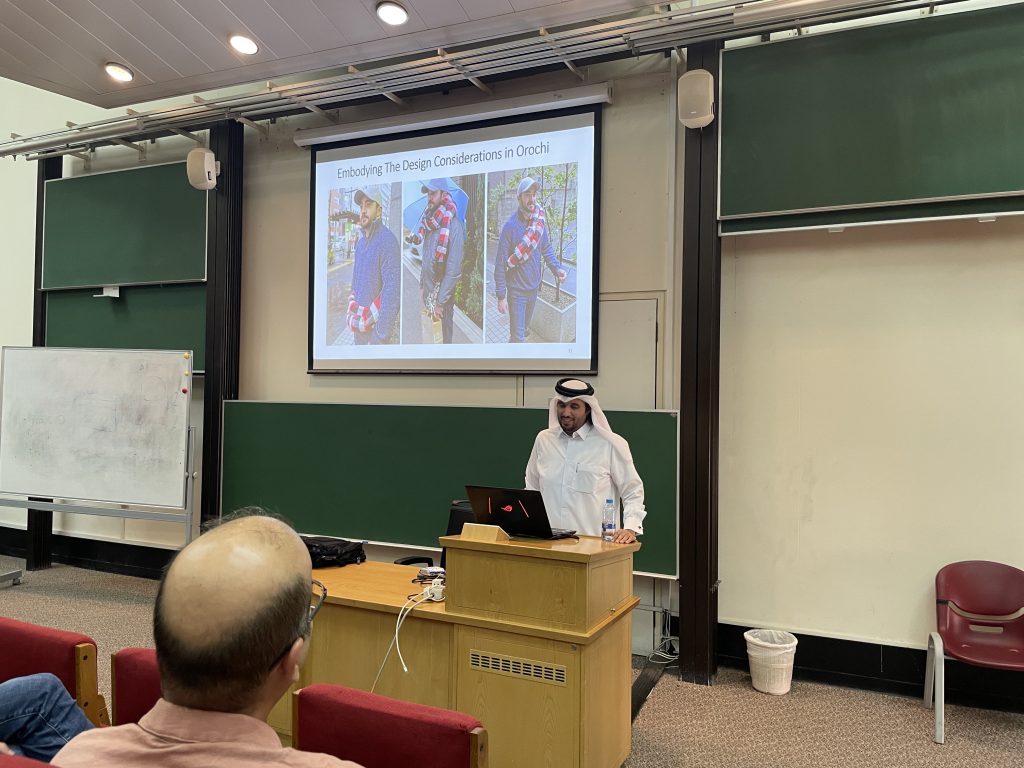
CSE Seminar by Dr. Ahmed Badawy
Date: 10th Oct 2022
Title: “On the Security of Wireless Communication: Practical Physical Layer Algorithms”.
Abstract: The broadcast nature of wireless communication imposes the risk of information leakage to adversarial or unauthorized users. Therefore, information security between intended users remains a challenging issue. Currently, wireless security relies on cryptographic techniques and protocols that lie at the upper layers of the wireless network that requires complex key management scheme in the case of symmetric ciphers and high computational complexity in the case of asymmetric ciphers. Research in physical layer security has attracted significant interest from the research community due to its potential to generate information-theoretic secure keys. In addition, since the vast majority of physical layer security techniques exploit the inherent randomness of the communication channel, key exchange is no longer mandatory. Another direction of physical layer security that can enhance secrecy capacity is by generating and transmitting artificial noise to mitigate the effect of passive eavesdropping attacks. The scope of this seminar is to present novel secret key generation algorithms that exploit the reciprocity of the wireless channel and to discuss how artificial noise can be used to confuse potential passive eavesdroppers.
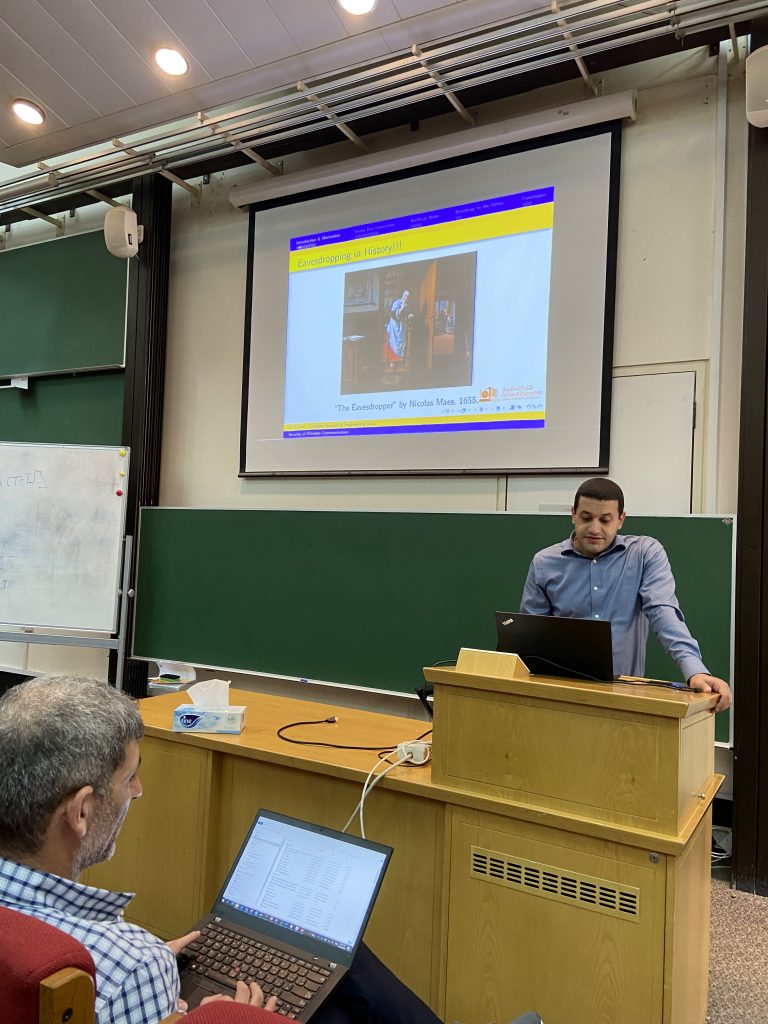
CSE Seminar by Dr. M. Moazam Azeem
Date: 17th Oct 2022
Title: “Short Block Codes for Reliable Communications within the Coexistence of 5G-NR-U and WiFi”.
Abstract: Unlicensed spectrum offers opportunities for cellular mobile network operators, where traffic can be offloaded from licensed to unlicensed bands. Modern heterogeneous technologies such as 5G New Radio (NR) and WiFi can simultaneously operate on ISM and UNII bands under strict coexistence rules. We will present the application of short, concatenated and product erasure correcting codes to recover missing data in LBT-based systems due to collisions during wireless communication. This technique will enhance spectrum utilization with reduced delay and to achieve reliable communications under LBT.
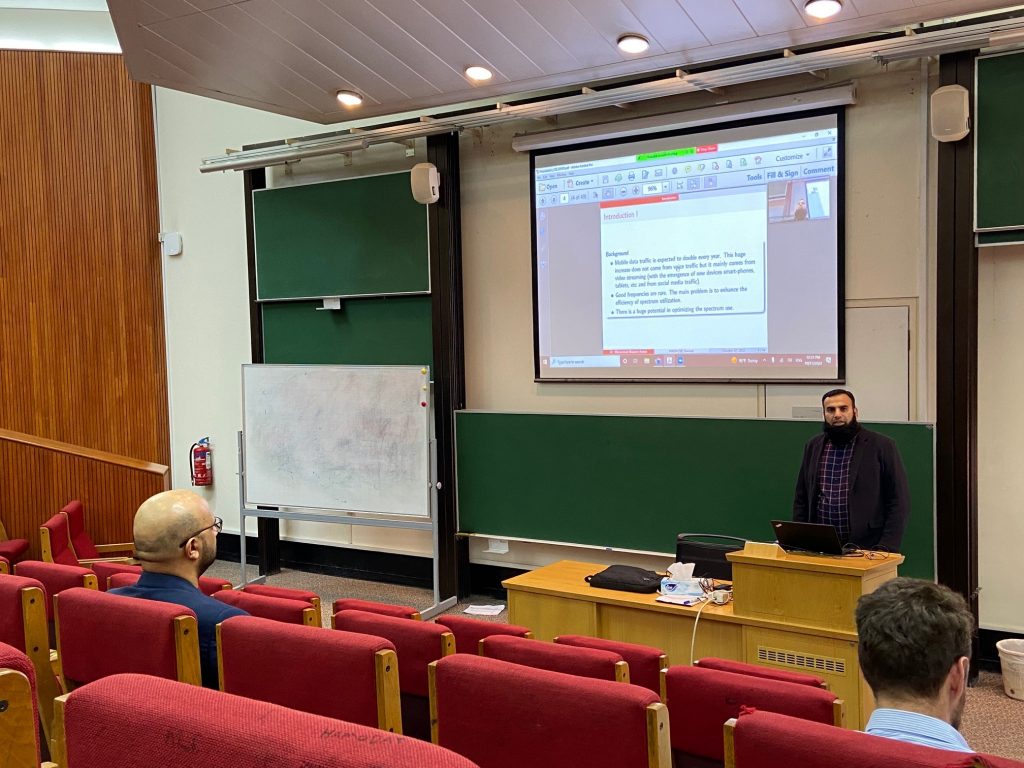
CSE Seminar by Dr. Jurlind Budurushi
Date: 24th Oct 2022
Title: “Confidential Computing in Cloud Environments – Current trends, and challenges”.
Abstract: Over the last decade the adoption of Cloud Computing has significantly expanded. At the same time the number of Cloud Providers and their service offerings is constantly increasing. Although Cloud Computing enables the long-held dream of computing as utility and it unlocks use cases which were not previously possible, it also introduces new challenges. One of the major challenges of Cloud Computing is data confidentiality, in particular confidentiality of data in use. While confidentiality of data at rest and data in transit has been addressed since the early stages of Cloud Computing, confidentiality of data in use has been addressed only recently through novel technological developments, so called Confidential Computing. This seminar talk gives an overview of challenges Confidential Computing addresses and innovative use cases it enables, and describes the different approaches how Confidential Computing can be achieved. Furthermore, it outlines current trends, i.e., the different solutions offered by the major Public Cloud Vendors, Amazon AWS, Google Cloud Platform GCP, and Microsoft Azure. In conclusion, open challenges of Confidential Computing and potential research directions to solve such challenges are discussed.
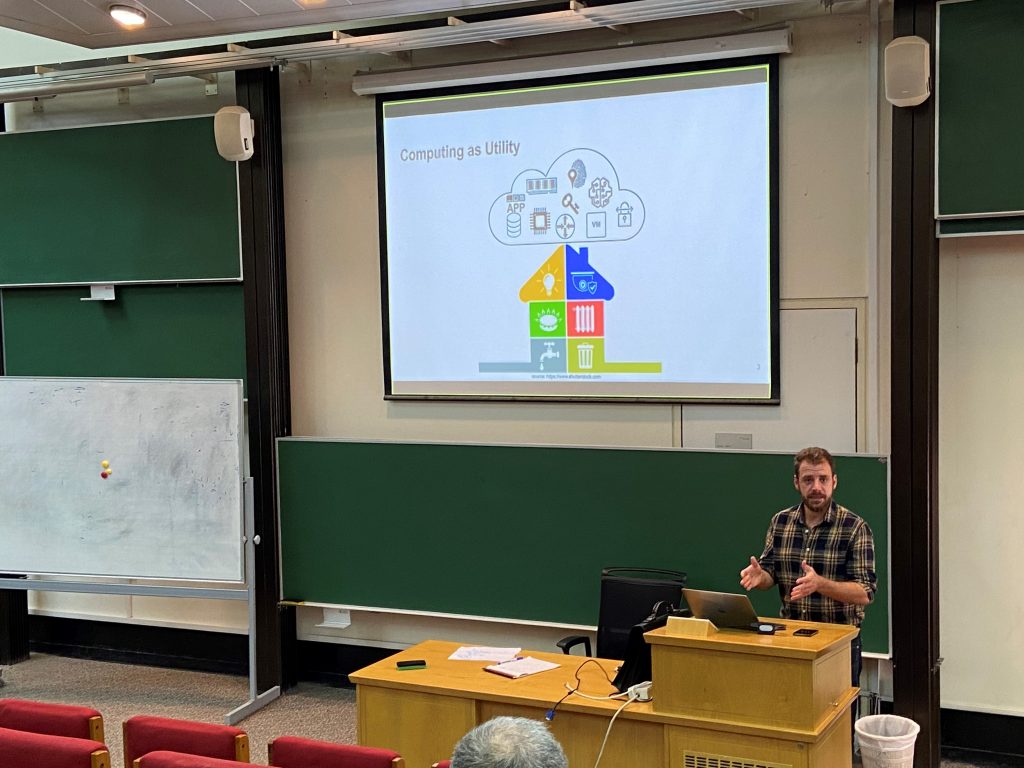
CSE Seminar by Dr. Serkan Kiranyaz
Date: 07 November 2022
Title: “Restore to Analyze: Biomedical Signal Restoration and Analysis”.
Abstract: There is a strong need to “restore” corrupted biomedical signals for an accurate and reliable diagnosis by both machines and humans. Existing studies have focused only on a specific restoration problem, e.g., “denoising”, with a strong assumption on the noise type and severity. However, in reality, biomedical signals are corrupted by a blend of various artifacts. So, in this talk we shall focus on blind biomedical signal restoration using new-generation machine learning paradigms. We shall also glimpse on the future plans on biomedical signal syntheses and transformation for a superior visualization and assessment, all of which will be pioneer applications with ground-breaking potentials.
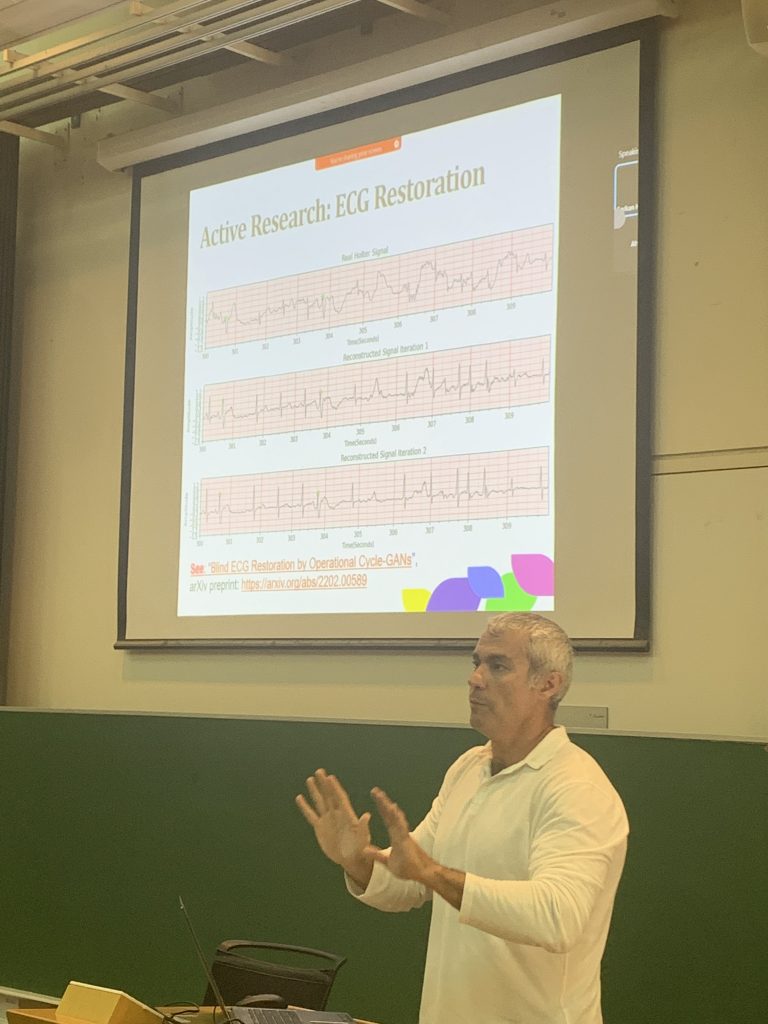
CSE Seminar by Professor Simon See
Date: 13 Feb 2023
Title: “Industry Metaverse = Clash of Data, AI and High Performance Simulation”
Abstract:
Understanding the complexity and finding certainty in such uncertain times can deliver major operational advantages for any economical, industrial or scientific assets. A digital twin is a virtual representation — a true-to-reality simulation of physics and materials — of a real- world physical asset or system, which is continuously updated. Digital twin technology, with data at its core, is helping scientists, engineers, biologist or even economist gain control and understanding over their resources and assets. In this talk, we discuss how Mathematics, data, simulation and AI make digital twins possible.
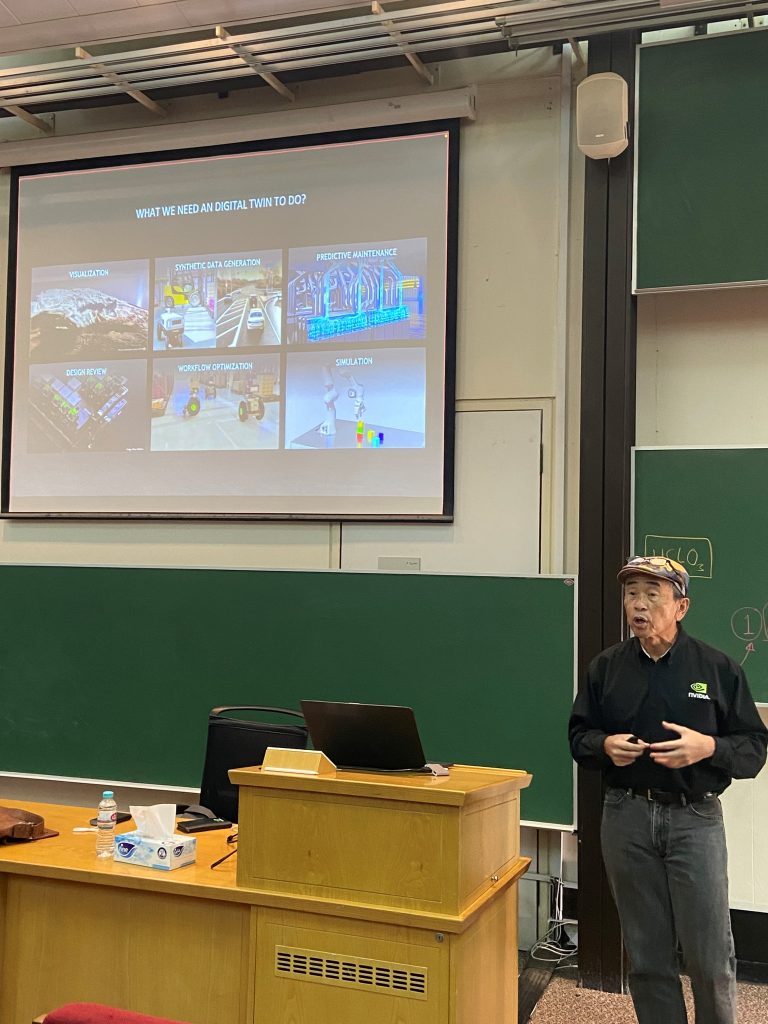
CSE Seminar by Dr. Jim Jansen
Date: 16 Feb 2023
Title: “The Journey of Journal Publishing”
Abstract:
Publishing a research article is a journey! We will discuss challenges and advice on preparing, submitting, and revising research manuscripts to increase the probability of acceptance at a top-tier journal. The insights are based on my experiences as editor-in-chief (EIC) of two journals, the first being Internet Research (Emerald, Impact Factor of 3.017 at the end of my tenure) and currently of Information Processing & Management (Elsevier, Impact Factor of 7.466). The focus will be on the mechanics of the journey, including cover letters, items on a manuscript checklist, what happens to your manuscript once submitted, handling communication with the EIC and other editors, the crafting of the response to the reviewers, the revising of the manuscript, and polishing the accepted article. We will also touch on the influence of citations, impact factors, and the contribution of reviewing to the academic research process in what will hopefully be a discussion more than a presentation. The takeaways will be tactics to improve your chances for a top-tier journal acceptance.
